Op | Ed: Stop Studying and Build Ships

Maybe it is a human trait, or maybe a Washington, D.C. trait, but when confronted with a difficult problem with unpalatable solutions, there is usually an impulse to delay the moment of difficult decision by ordering a study. The U.S. merchant marine industry is the poster child for this behavior. The industry has been studied and studied, and is currently being studied, but studies don’t build ships -- shipyards build ships.Going back to the Lynch Committee in 1870, the U.S. government has regularly produced studies on how to revive the U.S. merchant marine.
The Third Proviso: Transportation Strategies & Jones Act Compliance

The Jones Act at 46 U.S.C. § 55102 forms the basis of U.S. domestic waterborne commerce by limiting the transportation of merchandise between U.S. points to vessels that are U.S.-built, U.S.-owned, U.S.-crewed, and U.S.-flagged. The Jones Act contains a limited exception known as the “Third Proviso” that permits certain domestic shipments to move through Canada using multimodal transportation without breaching the statute.Purpose and Limits of the Third Proviso.The Third Proviso to 46 U.S.C. § 55102 exempts from Jones Act restrictions the transportation of cargo between U.S.
For Commercial Vessels, VIDA Will Usher in New Era of Uniformity
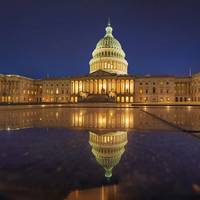
With everything going on around the maritime industry these days — from a Presidential Executive Order to Make U.S. Maritime Great Again, to bipartisan legislation in Congress to boost our shipyards and merchant marine, to the import tariff rollercoaster ride we’re all on — it’s easy to forget some other important U.S. maritime policy initiatives whose benefits are just over the horizon. One such initiative we mustn’t lose sight of is the effort by the U.S. Coast Guard and the U.S.
U.S. Reciprocal Tariffs: The Effect on Inbound Ocean Supply Chains and Compliance
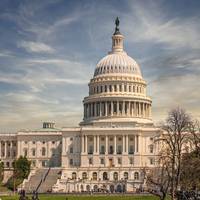
On July 31, 2025, President Trump signed an Executive Order (“E.O.”) modifying reciprocal tariffs that became effective on August 7, 2025. Some aspects of the impact are well understood such as increased tariff burden on importers ranging from 10% to over 40%. Still, other aspects of the practical effect and its knock-on effects for shipping are relatively novel. Understanding these measures is essential for all import supply chain participants and their service providers as real impacts on transportation spend and compliance risk come in focus.The In-Transit ExceptionCentral to the E.O.
Proposed Transfer of Regulatory Authority over Deepwater Ports from Coast Guard to MARAD is Ill-advised
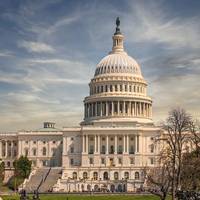
On March 5, 2025, the United States Senate passed an important bill to authorize funding for our United States Coast Guard, after failing to do so in the previous Congress. S. 524, the Coast Guard Authorization Act of 2025, would if enacted into law authorize appropriations to fund the Coast Guard totaling $30.45 billion for fiscal years 2025 and 2026. The bill is sponsored by Senate Commerce, Science, and Transportation Committee Chairman Senator Ted Cruz (R-TX) and cosponsored by Senators Maria Cantwell (D-WA), Dan Sullivan (R-AK), and Tammy Baldwin (D-WI).
Washington Watch: China Shipbuilding - Industry, Shippers Prep for Tariffs
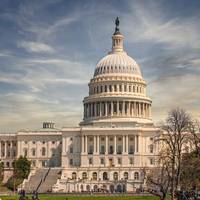
Domestic U.S. shipping interests are closely monitoring a United States Trade Representative (“USTR”) proposal for import and export trades involving Chinese vessels. There is an ongoing Section 301 investigation prompted by domestic industry concerns about China’s industrial ambitions in sectors that are critical to U.S. economic and national security. The outsized role of China in international ocean shipping is greater than many would expect. China’s global tonnage of the shipbuilding market share grew from less than 5% in 1999 to over 50% in 2023.
Legal Beat: U.S. Non-Contiguous Domestic Trade: Barge, Inland & Water Transportation
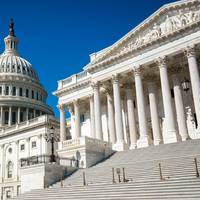
The U.S. inland waterway system is a critical and underutilized component of the domestic supply chain that serves non-contiguous markets originating in or destined for Alaska, Hawaii, and U.S. territories and possessions. For transportation service providers and shippers that operate in the domestic trade of the U.S., ocean carriers, barge operators, and inland waterway providers can offer cost-effective scalable alternatives to the traditional surface and air modes that connect these regions to the U.S. mainland.
WASHINGTON WATCH: A Maritime Reflection on the First 30 Days

The first thirty days of the new Trump Administration have brought sweeping changes throughout the federal government. We take a pause to assess where things stand for maritime stakeholders and what may be coming next in Washington, DC, for our industry.A Maritime DirectiveFor those that work in the U.S maritime space, it is axiomatic to state that all aspects of the maritime industry are critical to our national security. U.S. flag vessels and merchant mariners not only support U.S. economic prosperity, but also build the key sea lines of communication to support military operations.







